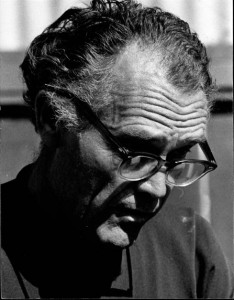This piece originally appeared on the website of Capital and Main, dedicated to investigating power and politics, on September 24, 2014. The author serves on their board.
* * *
The police stop a young man. An officer shoots, killing him. The officer claims self-defense, that the killing was warranted.
The community, having endured years of unequal treatment at the hands of law enforcement and other municipal agencies, responds in anger. Protests ensue. Hard feelings persist, as do demands for law-enforcement accountability.
Sound familiar? No, this is not the case of 18-year-old Michael Brown in Ferguson, Missouri. The young man in question was Augustin Salcido, 17, and the incident occurred in Los Angeles more than six decades earlier. The Internet did not exist at that time and local television audiences were miniscule, so the Civil Rights Congress of Los Angeles produced a pamphlet, Justice for Salcido. In its introduction, author and civil rights advocate Carey McWilliams described the killing as part of a historical pattern of “continued suppression of the Mexican minority.”
Fred Ross, organizer for a new group known as the Community Service Organization (CSO), recognized the all-too-prevalent problem of police brutality—and the familiar, ineffective community response. The pattern practiced by groups such as the Civil Rights Congress included protests that failed to address the underlying powerlessness of the community.
“They never win any of their cases—no power—so the people have gotten discouraged and won’t listen to the congress anymore,” said Ross, who posited that members of the community could not change the bias in the hearts of the offending officers, but the community, if properly organized, could use political power to alter behavior.
After all, the police worked for the city.


